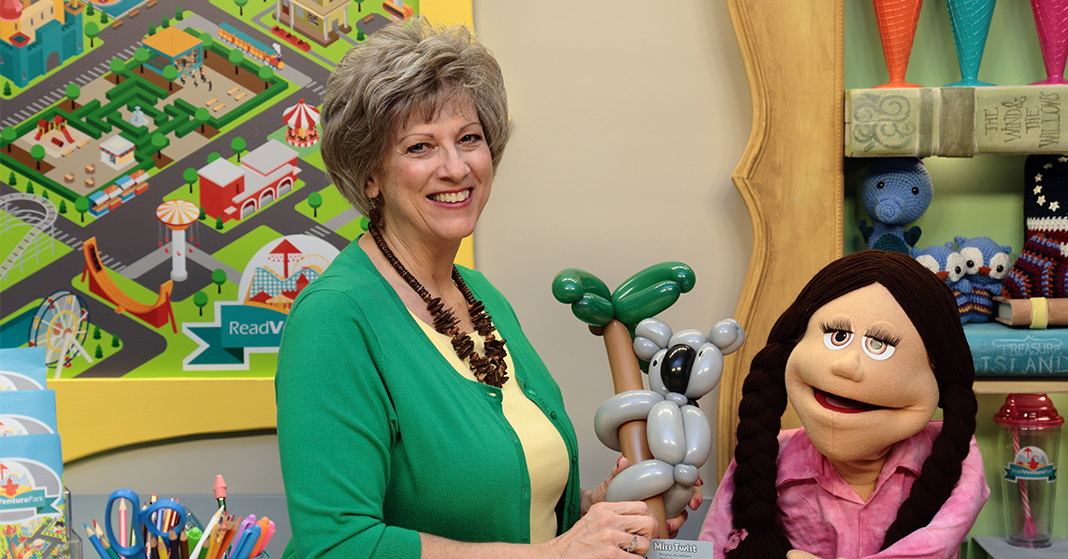
Our goal at BJU Press is to help your child get as much as he can from what he reads. Learning to gather meaning from stories can help him evaluate the choices others make and comprehend the information he needs to make good decisions. We also want to enable your student to recognize good writing as well evaluate characters’ choices from a biblical worldview. Here’s the final series of supplementary videos from Mrs. Walker that discuss asking good reading questions and recognizing good qualities in writing. We trust the videos will be a helpful guide as you encourage thorough and wise reading in your student.
Why So Many Reading Questions?
It may seem like we at BJU Press ask a lot of questions in reading lessons. And at times, so many questions may seem tedious. But research shows that giving your student questions before he reads will enable him to gather so much more information from the text in front of him. Good questions help your child read with a purpose, unlock learning opportunities, and reveal hidden meaning in the text. A well-formed question will pique your student’s interests and help him get that much more out of what he’s reading.
We encourage asking four types of questions:
- Literal questions focus on what the author said on the page and ensure that your child is grasping the basic facts of a story.
- Interpretive questions dig a little deeper and ask the reader what the author meant by what he said in the story.
- Applicational questions encourage your child to evaluate the moral tone in the story. “Did the characters make good choices or bad choices? Is the character I’m reading about a good example to follow?”
- Experiential questions help your child respond to the decisions and consequences in a story. “How should I respond when the good guy gets rewarded, and the bad guy gets punished? Is that right?”
Insightful questions are critical to helping your student learn the most from what he’s reading. Considering such powerful questions before engaging with a text will help your student in his education, his personal time in God’s Word, and his ministry and career further on in his life.
Recognizing Quality Reading
No doubt you’d agree with us that the skill set of reading is important—but what about the quality of reading? How will your student know good writing when he sees it? You can do a lot of things to encourage your child’s educational and recreational reading. We recommend that, if possible, you designate a specific time and place every day for your child to read. You’ll also want to guide your student in picking literature that expands and develops his abilities. “How long is this book? Is it too easy to read? Is this the same genre as the last book I read?” Eventually, you’ll want your child to progress from understanding the reading you put in front of him to making his own reading choices. Instilling a healthy love of reading in your student will help prepare him for the many opportunities that lie ahead of him.
Recognizing Quality Living
If you research how to give your child good reading material, odds are you’ll probably find a lot of information regarding selecting quality literature for students. But what you may not find a lot of is how to find literature for your student that clearly reflects a biblical worldview. Giving your child books consistent with scriptural principles and values is an excellent way to teach him how to live.
With every story, you will want to look for specific aspects that determine whether the book is good for your student. “What kind of behaviors happen in this story? Is good rewarded and evil punished? Is the evil made to seem harmless or even appealing? Are there any objectional elements in the story that really don’t need to be there—or are they discussed in too much detail?” Your rule of thumb in selecting literature for your student should be “Does it align with the truths of Scripture?” Giving your child stories that regard evil the same way God does will help him apply biblical truths in his life and see those truths played out in the lives of imaginary characters.
We hope that these videos have effectively communicated how to ask good questions and select valuable content for your student to read. Enabling your student to get the most of out of his reading will help him manage what he learns and apply what he learns in his day-to-day life.
More Videos from Mrs. Walker
You can check out all of Mrs. Walker’s videos on our YouTube channel. You can also see them in each of the blog posts below.
• • • • •
Matt recently graduated with an MA in communication studies and currently works as a freelance writer. He attributes the wild variety in his current opportunities to the exploration his parents gave him through the homeschooling experience. He enjoys theater, the gym, and choral music and will rarely say no to a cold glass of sweet tea.
Leave a Reply